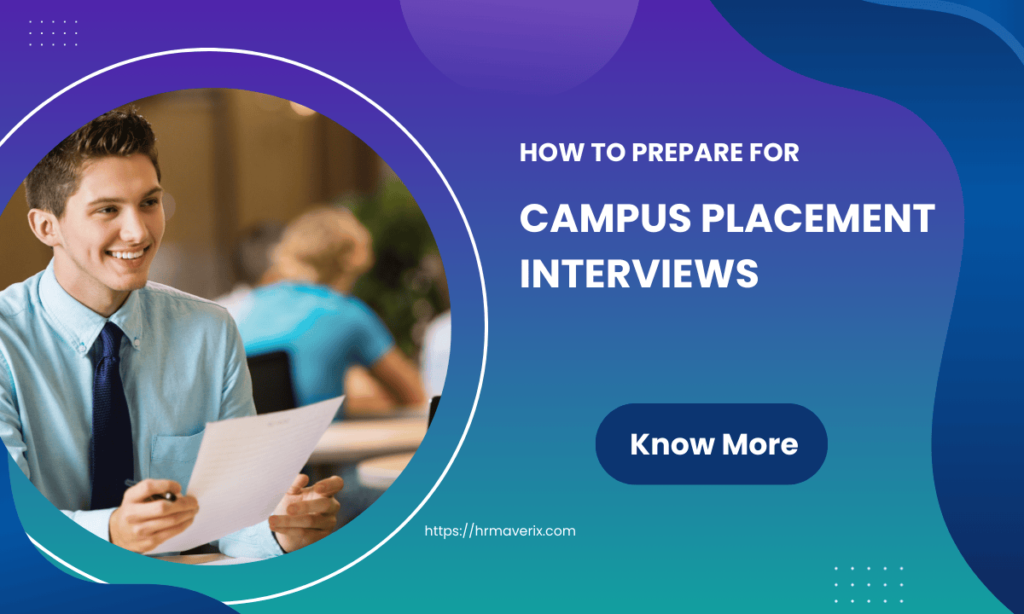Menu
Campus placement interviews, also known as campus recruitment or on-campus interviews, are a process where companies visit a college or university campus to recruit and hire students for various job positions. This is a common practice in many countries, especially in the United States, where companies seek to hire talented and skilled students who are nearing graduation or have recently graduated. These interviews are usually conducted on campus, and the company representatives meet with students who have applied for the job openings.

As a student, attending campus recruitment drives can be a daunting experience, especially if you’re not prepared. However, with the right strategies and mindset, you can increase your chances of landing a job or internship. Here are some practical tips to help you prepare for campus recruitment drives:
You’ll be ready for campus recruitment drives and improve your chances of getting a job or internship if you pay attention to these helpful pointers. You’ll get closer to your professional objectives if you maintain your composure, professionalism, and open-mindedness.
Remember to stay focused, be yourself, and showcase your skills and knowledge during the interview process.